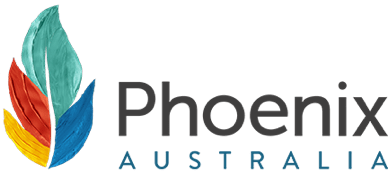

YOUR RECOVERY | EFFECTS OF TRAUMA
Alcohol & Substance Use
After a traumatic event, some people turn to alcohol or drugs to manage the distress they feel. Alcohol and drugs may help with painful emotions and memories in the short term, but they get in the way of recovery.
Treatment options: Alcohol & Substance Use
After a traumatic event, some people turn to alcohol or drugs to manage the distress they feel. Alcohol and drugs may help with painful emotions and memories in the short term, but they get in the way of recovery.
Counselling
There are many different counselling approaches that can help you change your drinking or drug taking. These include:
- Motivational Interviewing (MI). This therapy helps you understand the personal costs and benefits of your drug and alcohol use and decide what role you want them to continue to play in your life. It will help you set goals and maintain your focus on reducing or ceasing your drug and alcohol use.
- Cognitive Behavioural Therapy (CBT). CBT helps you to understand the links between your thoughts, feelings and behaviours. CBT teaches you skills to help you manage your cravings and reduce or stop your use of drugs or alcohol.
- Behavioural Couples Therapy or Family Therapy. Sometimes our relationships with those closest to us can make it challenging to change our habits. This therapy can help you and your family members understand how they can all play a role in helping you get control over your use of alcohol and drugs.
- Contingency Management. Your motivation to change your behaviour can often be helped by having a reward system in place to reward you when you reach your goals and to help you maintain the changes long-term. Contingency management allows you to set up a reward system that works for you.
- Relapse Prevention. This approach provides skills and strategies to avoid falling back into old habits, including knowing how to manage stressful situations and get back in control should you have a lapse.
- Residential Programs or Therapeutic Communities. These settings can be helpful for some people who have significant dependencies on one or more drugs and alcohol.
Counselling for problem drinking can take place individually, in groups or for couples. Counselling for drug taking is less likely to take place in a group and more likely to be one-on-one or as part of couples counselling.
Cutting out alcohol – get in touch with your GP
If you have been a heavy user of alcohol and drugs, your GP may prescribe you medication or refer you to a medical specialist to help you manage any symptoms that might occur when you are first reducing your intake.
Some of these symptoms can be dangerous – for example, there is a risk of seizures with alcohol withdrawal – so it is important that you seek medical advice before attempting to stop your drug and alcohol use on your own. Your GP can also assist with medications that lessen cravings, which can help you prevent relapse. Once the symptoms of withdrawal have settled down, or if your doctor decides that it is safe for you to reduce or stop your drinking without medical support, you can be referred to a drug and alcohol counsellor. They will help you manage your drug and alcohol problem effectively.
